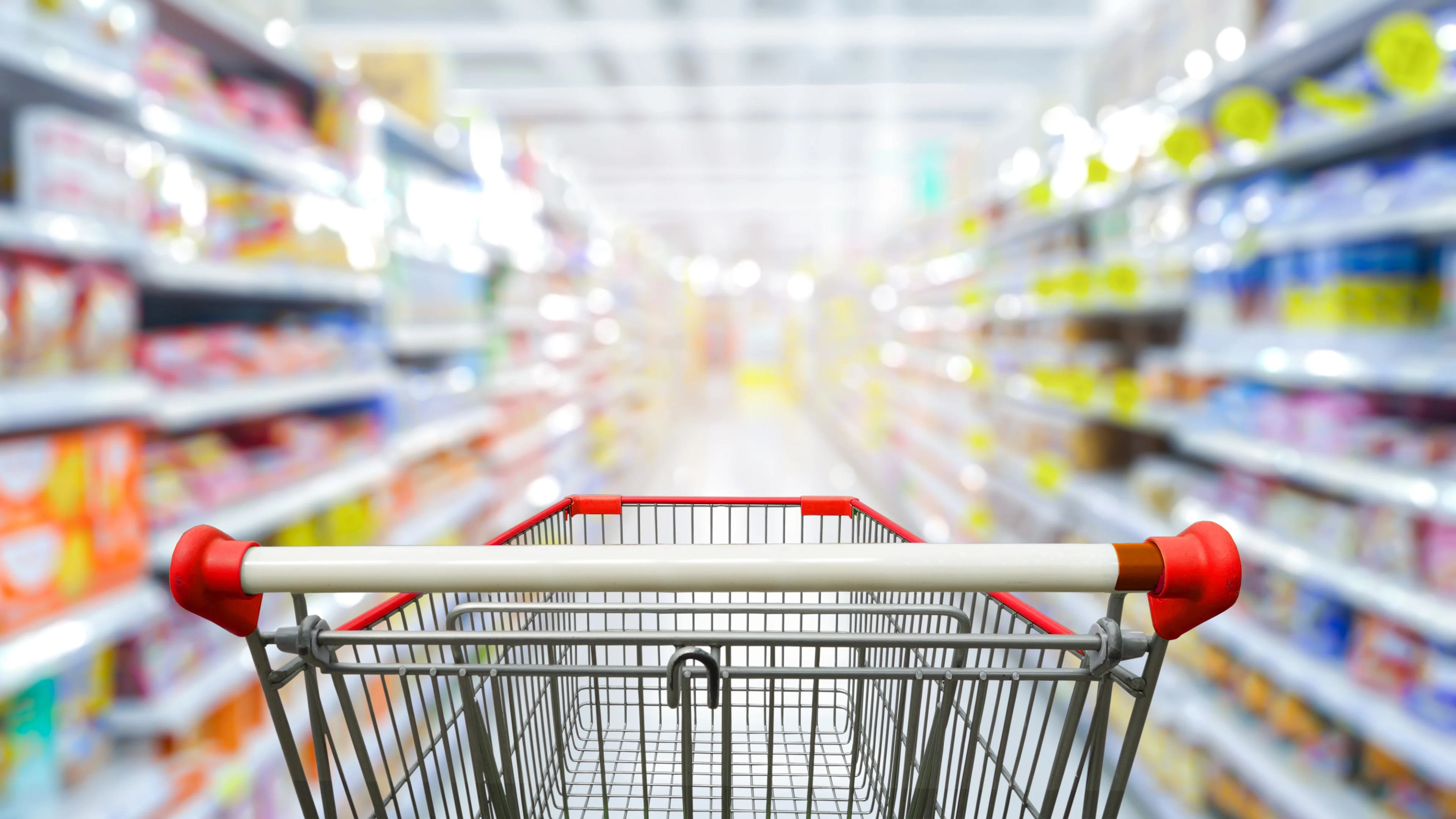Why Are Foodservice Wholesalers Turning to the Marketplace Model?

The foodservice wholesale industry has been forced to adapt quickly in the face of the current economic crisis: from global inflation causing shifts in spending, to inventory whiplash and supply disruptions. For those that had yet to establish a digital sales platform or were relying on traditional, linear sales channels, changing to new, more agile ways of conducting business can feel overwhelming in today’s macroeconomic environment.
Inflation has been driving up the price of raw materials, and as a result consumers are adjusting, cutting back on discretionary spending as well as shifting down market, opting for less expensive alternatives. And wholesalers are getting caught in the middle - looking for ways to quickly adjust to changing demand while protecting margin.
By launching an online marketplace or dropship platform of third-party sellers, foodservice wholesalers are able to quickly expand assortment into new categories that would otherwise not fit in their existing warehouses, while adding virtual buffer inventory on core categories to support seamless substitutions. This business model therefore enables these organizations to mitigate the availability and logistics restrictions of the traditional wholesale model.
B2C buying habits are now heavily influencing the B2B world where buyers, accustomed to being able to find everything they want on an online marketplace in their personal lives, now expect a similar shopping experience for their professional buying journey. This now also rings true in the foodservice wholesale sector, where top-level decision makers are widely recognizing a clear, robust digital strategy as a crucial business element to future-proof wholesale businesses.
In this blog we’ll dive into how foodservice wholesalers such as Musgrave, Trendy Foods, Winesitting, and UNFI have capitalized on the platform model as a key component of their digital commerce strategy.
More than 65% of foodservice wholesalers want to operate a marketplace
A survey carried out by the UK Federation of Wholesale Distributors (FWD), Foodservice Online and Mirakl showed an overwhelming recognition among foodservice wholesalers of the importance of developing a strong digital eCommerce presence. In fact, 100% of the leading foodservice wholesale businesses surveyed view eCommerce as important to the future of their business. More than 82% felt that demand from foodservice buyers for online services is increasing and more than 85% felt their business was disadvantaged if their competitors had a strong online presence.
However, less than half of those foodservice organizations surveyed had currently set aside a dedicated budget for eCommerce development. They understand and recognise the strategic priority of eCommerce, and more particularly of operating their own marketplace, but there is a very real disconnect between what these wholesalers recognise as necessary, and the action they are currently taking or investment they are currently making to implement eCommerce and their own marketplace.
That being said, looking to the future, foodservice wholesalers are ready to seize the platform opportunity - more than 65% of those foodservice wholesalers surveyed want to operate their own marketplace.
Streamlining the supply chain: Musgrave's plan to offer 26,000 products through its new online marketplace
Musgrave Marketplace, the only 100% Irish-owned national wholesaler, has successfully maintained its competitiveness in the midst of an economic downturn due to its strategic investment in online marketplace.
In 2021, Musgrave Marketplace launched its Extended Range which provides third-party Irish suppliers with a unique opportunity to sell their products to a B2B audience of more than 50,000 customers.
Barry Minnock, Retail IT Director, Musgrave explained: “We have customers who are seeking the one-stop shop. They wanted to get everything with us. We were running into capacity challenges in our supply chain. We needed to find a way to break down these constraints. [...] We believe that the new platform gives us a distinct competitive advantage. We feel that it is really important and to launch this as part of our wider offer."
In order to make it easier for customers to access the products they need, Musgrave is transforming a fragmented supply chain into a simplified and connected journey and offering a wide variety of products through a single digital platform.
By 2024, Musgrave aims to offer over 12,000 products through its Extended Range, in addition to its core range of 14,000 products, providing customers with a one-stop-shop for all their business needs.
Trendy Foods uses Mirakl Connect to accelerate the onboarding of vetted sellers on its platform
Trendy Foods, the leading food & beverage wholesaler in Belgium and Luxembourg, launched its Mirakl-powered Marketplace last year to better serve diverse customer segments.
The platform has seen a strong response since its launch in April 2022, with over 50 third-party sellers already signed up. Thanks to Mirakl Connect, the industry’s largest ecosystem of high quality, vetted global sellers, Trendy Foods are on track to reach their goal of adding 100 more sellers.
"Thanks to their expertise and through the Mirakl Connect ecosystem, we can easily and quickly integrate new sellers while ensuring they fit our brand DNA and meet our quality requirements." François Plunus, Marketing & Digital Director, Trendy Foods
Expanding assortments, increasing GMV: how ‘Community Marketplace by UNFI’ is meeting customer needs
In 2021, UNFI, the biggest publicly traded wholesaler of natural, organic, and specialty foods in the U.S. and Canada, launched the first wholesale food and beverage marketplace in North America - the Community Marketplace by UNFI. The marketplace launch was well-timed to meet the growing demand for healthy food products, and is expected to increase gross merchandise value by growing their product assortment to meet and exceed existing customers' needs.
With the Community Marketplace, UNFI has extended its product range, improved customer experience, and streamlined vendor onboarding. The platform also allows UNFI to test and learn across new categories by engaging more suppliers at scale, which provides a time-to-market advantage for new products without incurring significant risk or being limited by warehouse space. Since launch, UNFI has grown its offering to over 250,000 items from 30,000 retailers through its curation.
Winesitting's European expansion: faster deliveries, lower costs
In 2021, WineSitting, the leading French storage solution for third-party wine and spirit sellers, launched its own marketplace. By launching its online marketplace, WineSitting aims to streamline the wine and spirits supply chain, reduce costs and offer a more efficient way for its customers to order.
Winesitting's marketplace has played a key role in reducing costs by allowing the company to quickly and cost-effectively respond to shifts in demand. By partnering with more than 220 quality sellers and offering over 3,000 products, Winesitting is able to cater to a diverse range of customer needs while minimizing inventory costs.
The marketplace also offers customers the option to receive wines from multiple producers in a single order and fast one-day delivery, all with no minimum order quantity per product.
"I am convinced of the importance of the marketplace model. Combined with our expertise in the sector, our new platform will allow us to offer restaurants and wine shops a new channel via which to sell their products, therefore expanding the products on offer to end customers.” said Jean-Philippe HAUT, Founder and CEO, WineSitting
Starting in 2023, Winesitting is planning on expanding in Europe and developing its activities through the opening of new warehouses in Spain and Italy to complete its offer.
Interested in exploring the benefits of the platform model for your foodservice business? Contact us today!
